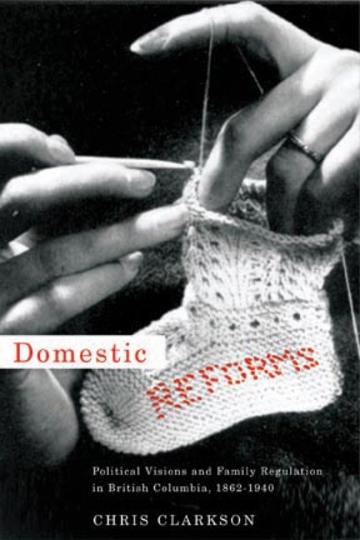British Columbia inherited a legal system that granted married men control over most family property and imposed few obligations on them toward their wives and children. Yet from the 1860s onward, lawmakers throughout the Anglo-American world, including legislators on the Pacific Coast, began to grant women and children new rights. Domestic Reforms deftly analyzes the impact of the legislation, with emphasis on the ambitions of regulated populations, the influence of the judiciary, and the social and fiscal concerns of generations of legislators and bureaucrats.
Chris Clarkson is a History Professor at Okanagan College.
Chris Clarkson’s new book, Domestic Reforms, is an important addition, not only to British Columbian family law scholarship, but also to the scholarship on the politics of family law and gender relations in general. Clarkson offers a fascinating and eye-opening account of lobbying, legislative processes and intent, and, sometimes, the unintended consequences of some of the legal reforms passed between 1862 and 1940 in British Columbia. … Clarkson has written a wonderfully complex and rich account of women’s status in British Columbian family law and society. Clarkson’s account powerfully demonstrates why reforms that seemed to be egalitarian turned out to be a double-edged sword.
Clarkson bridges legal history with political, social, and economic history, pulling in from a broad range of works as he sees fit. … One has a vision of Clarkson energetically juggling all the elements of his broad vision, but at the same time managing to keep absolute control of his intricate analysis. … This is an innovative and compelling study, demanding in its complexity, and of interest to a wide multidisciplinary readership.



